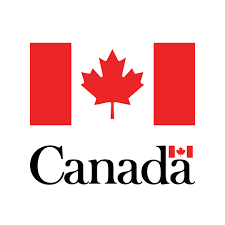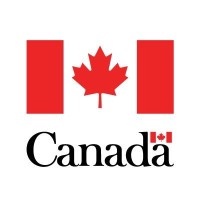
Integrated Circuit Topographies
At a glance
- No Condition
- Open Date : July 9, 2024
- Manufacturing
- Information and cultural industries
- Professional, scientific and technical services
- Canada
- For-profit business
- Sole proprietorship
- All revenue ranges
- All organization sizes
- All groups
Overview
Learn about or apply for registration for your integrated circuit topographies.
Activities funded
Eligibility
To be eligible for the registration of an integrated circuit topography, certain criteria must be met.
- The creator of the topography must be a national of Canada, a national of a country recognized by Canada by convention or treaty that affords protection for topographies, or a national of a country certified by notice published in the Canada Gazette.
- The creator must have, at the time of creation or at the time of filing, a real and effective establishment for the creation of topographies or the manufacture of integrated circuit products in Canada or a country that is a member of the World Trade Organization (WTO) or has a reciprocal agreement with Canada.
- The topography must be first commercially exploited in Canada, and the application must be filed within two years thereafter.
- The topography must not exceed the two-year limit for applying if it has been commercially exploited.
Who is eligible?
The Integrated Circuit Topography Act in Canada provides protection for the original designs of integrated circuit topographies. For companies to be eligible for registering their ICT, they must meet specific conditions related to the nationality of the creator, the location of commercial exploitation, and compliance with WTO member status or reciprocal agreements.
- Companies in which the creator is a national of Canada
- Companies where the creator is a national of a country that has a convention or treaty with Canada for the protection of topographies
- Companies where the creator is a national of a country certified by the Minister of Industry Canada by a notice published in the Canada Gazette
- Companies where the creator has a real and effective establishment for the creation of topographies or the manufacture of integrated circuit products in Canada
- Companies where the topography was first commercially exploited in Canada
- Companies where the creator is a national of a country that is a member of the World Trade Organization (WTO)
- Companies where the creator is a national of a country that has a reciprocal agreement with Canada
Eligible expenses
There are eligible expenses for this grant:
- Registration fees for the Integrated Circuit Topography
- Legal fees related to the registration process
- Costs associated with preparing and filing the application form
How to apply
Preparation of the necessary documents
- Obtain the appropriate forms from the Canadian Intellectual Property Office (CIPO).
- Prepare the necessary information: title(s) of the topology, nature or function of the topology.
- Determine the applicant's interest: creator of the topology or rights holder.
- Gather additional documents and information: number of layers of the topology, number of layers filed, number of layers containing confidential information.
Complete the application form
- Fill out the "Applicant" section with the full name and address of the applicant.
- Indicate the title(s) of the topology.
- Briefly describe the nature or function of the topology.
- Specify the applicant's interest (creator or rights holder).
- Confirm the registration requirements (nationality of the creator, real and effective establishment, prior commercial exploitation, etc.).
- Indicate whether the topology has been commercially exploited or not, and if so, specify the date and place of this first commercial exploitation.
- Provide a list of the material submitted with the application and other relevant information.
Gather supplementary documents
- Attach a complete set of technical data: layered sheets, drawings, or photographs of the topology.
- In case of confidentiality, ensure that certain information may be omitted under certain conditions.
- Provide samples of integrated circuit products (at least four if parts of the design are masked).
Management of representatives and agents
- If an agent is designated to submit the application, fill out the "Agent" section with their name and address.
- For applicants without an address in Canada, complete the "Representative for service" section with the name and address of a representative in Canada.
Signature and submission
- Sign and date the application form by the applicant or their agent.
- Prepare a check for CAD 200 payable to the Receiver General of Canada for the filing fee.
- Submit the duly completed application form and all supplementary documents to the Canadian Intellectual Property Office (CIPO).
Confirmation and follow-up
- Keep a copy of the application and submitted documents for your records.
- Follow up on the status of the application with CIPO if necessary.
Additional information
The grant provides protection for integrated circuit topographies while ensuring the owner exclusive rights to control reproduction, manufacturing, and commercial exploitation of their topographies. The registration process involves submitting an application with specific details, and fees are associated with various services relating to the registration.
- Registration of an ICT grants exclusive legal rights.
- Consult the Guide to Integrated Circuit Topographies for the registration process.
- Contact the Client Service Centre for an application form.
- Search and research Integrated Circuit Topography via service representatives.
- Resources include fees, forms, publications, legislation, and practice notices.
- Visit CIPO’s Web site for more information: http://cipo.gc.ca.
- Contact the Canadian Intellectual Property Office for more details via email: cipo.contact@ic.gc.ca.
- Protection term is up to ten years from the filing date or first commercial exploitation, whichever is earlier.
- Fees are applicable for application filing and other changes affecting the topography registration.
Contacts
Frequently Asked Questions about the Integrated Circuit Topographies Program
What is the Integrated Circuit Topographies?
Who is eligible for the Integrated Circuit Topographies program?
Who can I contact for more information about the Integrated Circuit Topographies?
Where is the Integrated Circuit Topographies available?
Is the Integrated Circuit Topographies a grant, loan, or tax credit?
Who are the financial supporters of the Integrated Circuit Topographies?
More programs like this

Industrial Research Assistance Program (IRAP) – AI Assist
National Research Council Canada (NRC)
Strategic Innovation Fund (SIF)
Innovation, Science and Economic Development Canada (ISED)
ISED — Artificial intelligence (AI)
Innovation, Science and Economic Development Canada (ISED)
Global Innovation Clusters
Innovation Canada
Green Industrial Facilities and Manufacturing Program — Energy Efficiency Solutions Track
Natural Resources Canada (NRCan)
TECHNATION — Career Ready Program
TECHNATION
Developing the next generation for skilled trades in advanced manufacturing
Excellence in Manufacturing Consortium (EMC)
iVisit
National Research Council Canada (NRC)
Apprenticeship Completion Grant (ACG)
Employment and Social Development Canada (ESDC)